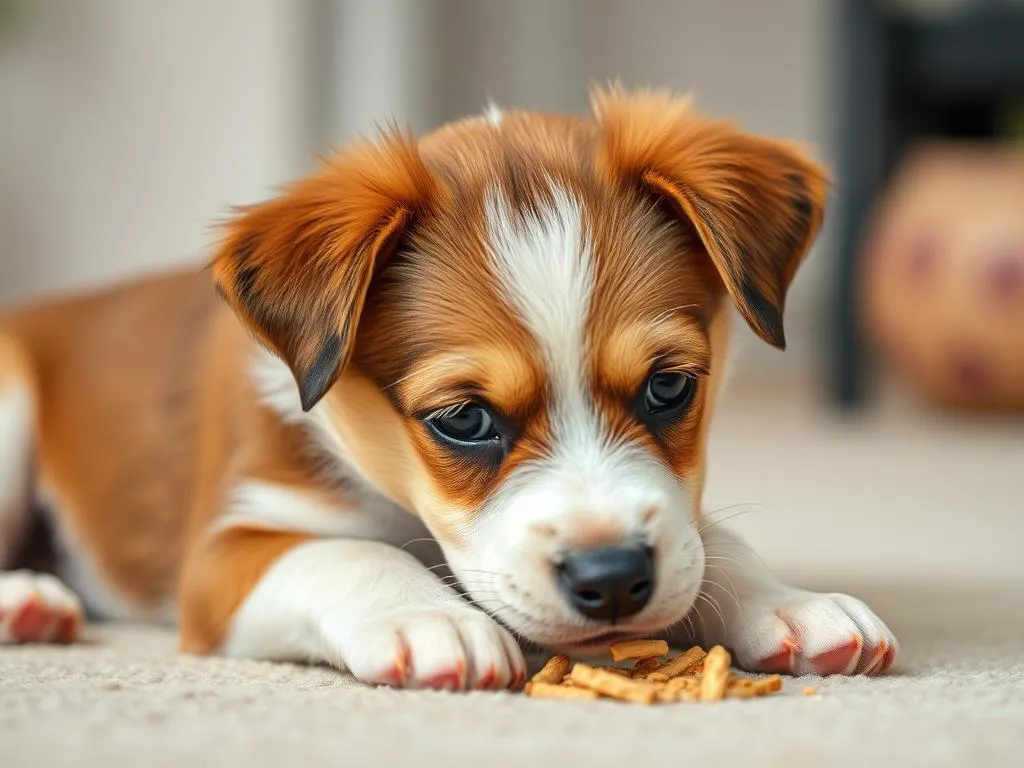
Introduction
Proper dog nutrition is crucial for the growth and health of your puppy. As a pet owner, understanding your puppy’s eating habits can significantly impact their overall well-being. One common concern among puppy owners is why does my puppy eat so fast? This behavior can be perplexing and worrisome, especially if it leads to health issues. In this article, we will delve into the reasons behind rapid eating, its implications on your puppy’s health, and how to manage this behavior effectively.
Understanding Puppy Nutrition
Nutritional Needs of Puppies
Puppies have unique nutritional requirements that differ significantly from adult dogs. They need a diet rich in:
- Proteins: Essential for growth and muscle development.
- Fats: Provide energy and support brain development.
- Vitamins and Minerals: Crucial for immune function and overall health.
- Carbohydrates: Supply energy and aid digestion.
A balanced diet tailored for puppies is vital as it helps them grow into healthy adults. Puppy food should ideally contain higher levels of certain nutrients compared to adult dog food to support their rapid growth and development.
Types of Puppy Food
Choosing the right type of food for your puppy is fundamental. The two main categories are:
- Dry Kibble: Convenient and often more economical. It helps in keeping your puppy’s teeth clean.
- Wet Food: More palatable for some puppies and can be beneficial for hydration.
You can also consider:
- Commercial Diets: These are formulated to meet specific nutritional standards.
- Homemade Diets: While more personalized, they need careful planning to ensure they meet all nutritional requirements.
Quality ingredients and proper nutrient profiles are essential, regardless of the type of diet you choose.
The Behavior of Fast Eating
Why Puppies Eat Quickly
Understanding why does my puppy eat so fast involves looking into their natural instincts. Puppies are descendants of wolves, who often had to scavenge for food. This instinct can lead to rapid eating, especially if they perceive food as a limited resource. Other factors include:
- Litter Behavior: Puppies raised in a litter may eat quickly due to competition with their siblings.
- Early Weaning: Puppies weaned too early may not have learned to eat at a normal pace.
However, rapid eating can have serious health implications.
Signs of Fast Eating
Identifying the signs of fast eating can help you manage your puppy’s eating habits effectively. Watch for:
- Physical Signs: Gulping, choking, or vomiting after meals indicate that your puppy is eating too fast.
- Behavioral Signs: Anxiety or restlessness during meals can also suggest that your puppy feels the need to rush through their food.
Risks Associated with Fast Eating
Health Risks
One of the most significant health risks associated with fast eating in puppies is bloat. Bloat is a serious condition where the stomach fills with gas and can twist, leading to life-threatening complications. Other digestive issues include:
- Gas: Excess air intake can lead to discomfort.
- Diarrhea: Rapid eating can disrupt digestion and lead to loose stools.
- Discomfort: Overeating quickly can cause physical pain and distress.
Behavioral Concerns
Fast eating can also lead to behavioral issues. For example:
- Food Aggression: Puppies that eat quickly may develop aggressive behaviors around food, especially if they feel threatened by other pets.
- Overall Behavior and Temperament: Rapid eating can affect your puppy’s overall demeanor, making them more anxious or restless.
Solutions for Slowing Down Fast Eaters
Feeding Techniques
There are several effective techniques to slow down your puppy’s eating habits:
- Slow Feeder Bowls: These bowls are designed with obstacles that encourage your puppy to eat more slowly.
- Puzzle Feeders and Interactive Toys: These can make mealtime a fun and challenging experience, slowing down their eating pace.
- Spreading Food: Try spreading your puppy’s food out on a tray or mat to encourage them to take their time.
Feeding Schedule Adjustments
Establishing a consistent feeding routine can help manage your puppy’s eating speed. Consider the following:
- Regular Feeding Times: Stick to a schedule that allows your puppy to anticipate meals, reducing anxiety during feeding.
- Portion Control: Managing portion sizes can help prevent overeating and teach your puppy to eat at a more leisurely pace.
Training and Behavioral Modifications
Implementing training techniques can also help your puppy learn to eat more slowly:
- Positive Reinforcement: Reward your puppy for calm eating behaviors. This can create a positive association with taking their time during meals.
- Gradual Desensitization: If your puppy is anxious during meals, gradually introduce them to the feeding environment to reduce stress.
When to Seek Professional Help
Signs That Require Vet Attention
If your puppy displays persistent signs of distress, it might be time to consult a veterinarian:
- Vomiting: Frequent vomiting after meals can indicate serious health concerns.
- Sudden Changes: Any sudden changes in eating behavior warrant professional evaluation.
Consultation with a Veterinarian
Discussing dietary choices and concerns with your veterinarian is crucial. They can provide personalized advice and may refer you to a dog nutritionist for specialized help.
Conclusion
Understanding why does my puppy eat so fast is vital for ensuring their health and happiness. Addressing this behavior early on can prevent potential health risks and promote better eating habits. By implementing strategies to slow down their eating, you can contribute significantly to your puppy’s overall well-being. Remember, a healthy diet and a relaxed mealtime environment are key to nurturing your puppy into a happy, well-adjusted adult dog.









